Posted June 27, 2024 by Nicky in Reviews / 1 Comment
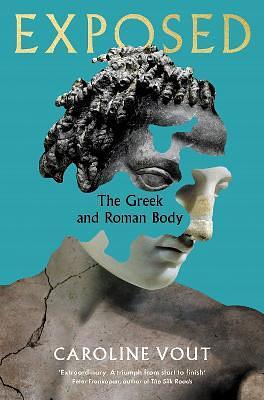
Exposed: The Greek and Roman Body
Genres: History,
Non-fiction Pages: 432
Rating: 
Synopsis: The Greek and Roman body is often seen as flawless - cast from life in buff bronze and white marble, to sit upon a pedestal. But this, of course, is a lie.
Here, classicist Caroline Vout reaches beyond texts and galleries to expose Greek and Roman bodies for what they truly were: anxious, ailing, imperfect, diverse, and responsible for a legacy as lasting as their statues. Taking us on a gruesome, thrilling journey, she taps into the questions that those in the Greek and Roman worlds asked about their bodies - where do we come from? What makes us different from gods and animals? What happens to our bodies, and the forces that govern them, when we die? Vout also reveals the surprising actions people often took to transform their bodies - from sophisticated surgery and contraception to body oils, cosmetics and early gym memberships.
You've seen the paintings, read the philosophers and heard the myths - now here's the classical body in all its flesh and blood glory.
First things first: as a physical object, Caroline Vout’s Exposed: The Greek and Roman Body is beautifully done. There’s lots of images included, arranged around the text in a usually sensible manner, and in colour. (I generally don’t ever look at the glossy included pages in books, in part because I wouldn’t retain any impression of the image while reading as I don’t have any kind of “mind’s eye”, so this worked especially well for me.) It’s really well presented in sections that make good sense.
In terms of the written content, I found most of it surprisingly familiar. Perhaps I shouldn’t be surprise: I’ve read plenty about the Greeks and Romans, if not directly about their bodies and their perceptions of their own bodies, and I did study classics up to A Level. But still, I’d kind of expected more surprises, e.g. around attitudes to disability… There were some titbits that were new to me, but mostly it wasn’t.
Which doesn’t mean it wasn’t a good summary: I found it an enjoyable read, and as I said, very well presented. Sometimes it felt like it was a little less in-depth than I’d like, and I didn’t (personally) hit that level of “huh, interesting!” that made me want to go and tell my wife about it, which is my real marker for interesting non-fiction, but it makes for a pretty good overview and summary, and is likely more surprising to people who’ve done less reading on related topics.
Rating: 4/5
Tags: book reviews, books, Caroline Vout, history, non-fiction
Posted June 26, 2024 by Nicky in Reviews / 2 Comments

System Collapse
Genres: Science Fiction Pages: 243
Rating: 
Synopsis: Everyone’s favorite lethal SecUnit is back.
Following the events in Network Effect, the Barish-Estranza corporation has sent rescue ships to a newly-colonized planet in peril, as well as additional SecUnits. But if there’s an ethical corporation out there, Murderbot has yet to find it, and if Barish-Estranza can’t have the planet, they’re sure as hell not leaving without something. If that something just happens to be an entire colony of humans, well, a free workforce is a decent runner-up prize.
But there’s something wrong with Murderbot; it isn’t running within normal operational parameters. ART’s crew and the humans from Preservation are doing everything they can to protect the colonists, but with Barish-Estranza’s SecUnit-heavy persuasion teams, they’re going to have to hope Murderbot figures out what’s wrong with itself, and fast!
Yeah, this plan is… not going to work.
I received a copy of this book for free in exchange for an honest review. This does not affect my opinion of the book or the content of my review.
I love Martha Wells’ Murderbot books, but System Collapse ultimately didn’t quite work for me. I think it might’ve been tighter at the novella length like the earlier books, or more fleshed out with a longer plot. This way, it felt like there was a certain amount of filler, where I’d have tightened up e.g. the opening. Admittedly part of that gives Murderbot the time to talk about redacted and build up the curiosity about that, but honestly I kept just reading that as being evasiveness about the events of Network Effect anyway…
Overall, the plot felt pretty thin. There were some nice moments, like Murderbot’s realisation of how to reach the colonists — and the fact that that helped boost Murderbot’s performance. Important development does happen here, too: more glimpses of ART’s crew, a little peek at what Three might do now, some aftermath from Network Effect for the colonists, and of course, Murderbot’s obvious need for trauma therapy (which has been a long time coming).
I just… hoped for a bit more when promised another novel in the series, and perhaps that’s also part of my rating here. Here’s hoping for more of Murderbot and ART soon (and perhaps, maybe, a few more glimpses of Three, and the other newly freed SecUnit).
Rating: 3/5
Tags: book reviews, books, Martha Wells, SF/F
Posted June 24, 2024 by Nicky in Reviews / 0 Comments
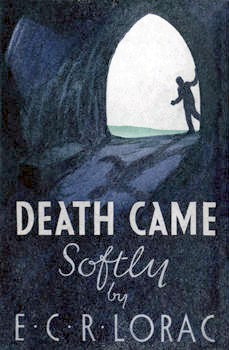
Death Came Softly
Genres: Crime,
Mystery Pages: 251
Rating: 
Synopsis: This crime puzzle features Chief Inspector Robert Macdonald, who is a “London Scot” and an avowed bachelor with a love for walking in the English countryside. But what will he make of the body found dead in a cave?
Death Comes Softly has a lot to recommend it; if it weren’t an E.C.R. Lorac book, it’d unquestionably be four stars, whereas as it is I’m weighing in the balance with her other books and wondering if four stars is quite fair. Sometimes when I’m reading classic crime, I’m just looking for a mystery with all the traditional bells and whistles, and that’ll be satisfying in and of itself. It feels like with E.C.R. Lorac’s work, I look for a little more.
Still, with her usual skill she summons up a landscape that feels beautiful, peaceful and real — and a group of characters who also feel like humans. Macdonald is, as ever, a fundamentally decent person, and Lorac’s usual ability to make her characters feel memorable and worth knowing is present too.
I tumbled to the why of the mystery quicker than the how, and feel like maybe it could’ve used a little more hinting. Mind you, maybe when it was written this kind of thing would’ve been more obvious. I’ve never handled a charcoal brazier at all, after all.
Rating: 4/5
Tags: book reviews, books, crime, E.C.R. Lorac, mystery
Posted June 23, 2024 by Nicky in Reviews / 1 Comment

Foxes in Love
Genres: Graphic Novels Pages: 114
Series: Foxes in Love #2 Rating: 
Synopsis: This is a simple comic about simple foxes. Blue and Green continue their simple adventures in the second volume of Foxes in Love. This series is a heartwarming and humorous collection of comics exploring family, life, and relationships, told by two foxes living their lives together.
Volume 2 contains 9 exclusive comics which were never released online as well as 8 colorized comics which were previously only released in black and white.
I absolutely adore Toivo Kaartinen’s Foxes in Love comics. I’ve read most of them, over time, but I was glad to get a copy of this as well to keep on my shelf and support the author. The comics are sometimes just funny, sometimes really romantic, sometimes a little bit profound… it’s a mix.
It’s perhaps best not to read the whole thing in one sitting: charming as the comics are, they don’t have a storyline or anything, and it can get a little “samey”. I picked up volume 3, but I’ll give it a little time before I read it.
Obviously you can also just follow the comic online in various places if you want to see if it’s to your taste.
Rating: 5/5
Tags: book reviews, books, comics, Toivo Kaartinen
Posted June 21, 2024 by Nicky in Reviews / 2 Comments
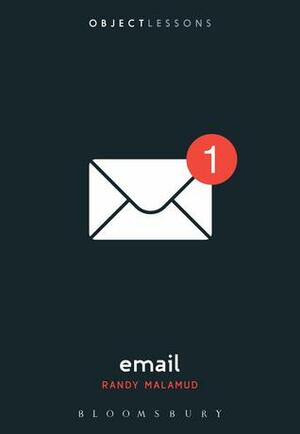
Email
Genres: Non-fiction Pages: 184
Series: Object Lessons Rating: 
Synopsis: Do you feel your consciousness, your attention, and your intelligence (not to mention your eyesight) being sucked away, byte by byte, in a deadening tsunami of ill-composed blather, corporate groupthink, commercial come-ons, and other meaningless internet flotsam? Do your work life and your social life, hideously conjoined in your inbox, drag each other down in a surreal cycle of neverending reposts, appointments, and deadlines?
Sometime in the mid-1990s, we began, often with some trepidation, to enroll for a service that promised to connect us-electronically and efficiently-to our friends and lovers, our bosses and merchants. If it seemed at first like simply a change in scale (our mail would be faster, cheaper, more easily distributed to large groups), we now realize that email entails a more fundamental alteration in our communicative consciousness. Despite its fading relevance in the lives of the younger generation in the face of an ever-changing array of apps and media, email is probably here to stay, for better or worse.
Randy Malamud’s Email is a bit of a meditation on email and what it can be used for, with some glimpses into the history of the medium… but mostly it’s a little sceptical, a little dismissive. Now and then he gives into the wonder of the fact that we can almost immediately contact people all over the world and say anything… but mostly he harps on the fragmented focus, the lack of profundity, etc.
As someone who kept in contact with my now-wife mostly only through email for long months when they were teaching in a remote area in Finland, I think Malamud’s vision is sorely lacking. I had whole 100-email threads with friends full of ideas and chatter, which is the only reason I know that after 100 emails in a thread, Gmail starts a new one. I’ve written stories with other people going back and forth by email.
Of course I work with boring, transactional emails every day — and of course those emails aren’t wonders of the world. But I think there’s a lot more to it than Malamud’s willing to see, and more history he could’ve dug into. I know I always harp on about Personal Stereo and Blue Jeans as being my favourites so far from this series, but I crave more books like those two.
Rating: 2/5
Tags: book reviews, books, non-fiction, Object Lessons, Randy Malamud
Posted June 20, 2024 by Nicky in Reviews / 0 Comments

This New Noise: The Extraordinary Birth and Troubled Life of the BBC
Genres: History,
Non-fiction Pages: 288
Rating: 
Synopsis: 'The BBC, to my mind at least, is the most powerful British institution of them all, for, as well as informing, educating and entertaining, it permeates and reflects our existences, infiltrates our imaginations, forms us in myriad ways.'
Charlotte Higgins, the Guardian's chief culture writer, steps behind the polished doors of Broadcasting House and investigates the BBC. Based on her hugely popular essay series, this personal journey answers the questions that rage around this vulnerable, maddening and uniquely British institution. Questions such as, what does the BBC mean to us now? What are the threats to its continued existence? Is it worth fighting for?
Higgins traces its origins, celebrating the early pioneering spirit and unearthing forgotten characters whose imprint can still be seen on the BBC today. She explores how it forged ideas of Britishness both at home and abroad. She shows how controversy is in its DNA and brings us right up to date through interviews with grandees and loyalists, embattled press officers and high profile dissenters, and she sheds new light on recent feuds and scandals. This is a deeply researched, lyrically written, intriguing portrait of an institution at the heart of Britain.
The BBC is a British institution, and one which has been agonised over a lot. It sometimes feels like that’s something which happened only in recent years, but Charlotte Higgins’ This New Noise makes it clear that we’ve agonised over the BBC for as long as it has existed — and we’ve never had the halcyon perfect days that I think many people imagine. It’s always been what it is now, and as contentious as it has been now.
At times, I think Higgins tells the story a bit out of order, making references to events she explains properly later. This might work well for someone who has been alive for a bit more of the BBC’s lifespan, but I was not yet very engaged with the news for some of these! I also wasn’t really aware of the various directors-general, so just mentioning their names didn’t really contextualise things.
It’s still an interesting history, especially where it discusses people I didn’t know about at all, whose roles have been forgotten, like Hilda Matheson. She sounded pretty great (though of course it’s easy to make idols of people). All in all, an enjoyable read, and a useful point of view.
Rating: 3/5
Tags: book reviews, books, Charlotte Higgins, history, non-fiction
Posted June 19, 2024 by Nicky in Reviews / 0 Comments
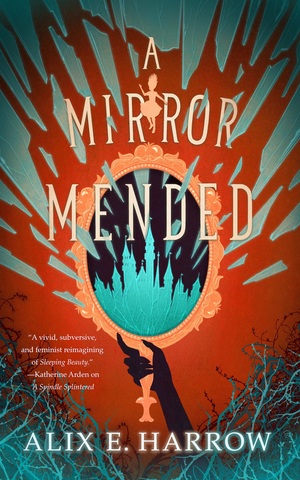
A Mirror Mended
Genres: Fantasy Pages: 128
Series: Fractured Fairytales #2 Rating: 
Synopsis: Zinnia Gray, professional fairy-tale fixer and lapsed Sleeping Beauty is over rescuing snoring princesses. Once you’ve rescued a dozen damsels and burned fifty spindles, once you’ve gotten drunk with twenty good fairies and made out with one too many members of the royal family, you start to wish some of these girls would just get a grip and try solving their own narrative issues.
Just when Zinnia’s beginning to think she can't handle one more princess, she glances into a mirror and sees another face looking back at her: the shockingly gorgeous face of evil, asking for her help. Because there’s more than one person trapped in a story they didn’t choose. Snow White's Evil Queen has found out how her story ends and she's desperate for a better ending. She wants Zinnia to help her before it’s too late for everyone.
Will Zinnia accept the Queen's poisonous request, and save them both from the hot iron shoes that wait for them, or will she try another path?
A Mirror Mended follows more or less straight on from A Spindle Splintered, and Alix E. Harrow doesn’t give you a lot of background or reminding about the first book — they’re probably best read back-to-back. They don’t follow straight on in time, but they might as well: part of the issue in A Spindle Splintered is that Zinnia hasn’t really thought about what the events of the previous book mean for her. She’s running, still.
I found it all somewhat less, well, charming, without Charm so actively in the mix somehow — her love for Zinnia, her determination to help her, is a really strong part of the appeal. She’s not gone, of course, but for the majority of the story she’s in the background, and Zinnia is trying really hard not to think about her too much.
The romance in this book feels a little too speedy, though I think it could’ve worked for me with a bit more time. I still enjoyed what Harrow did with the meta nature of the story, though, and it’s a fun read.
Rating: 3/5
Tags: Alix E. Harrow, book reviews, books, SF/F
Posted June 17, 2024 by Nicky in Reviews / 2 Comments

The Lost Gallows
Genres: Crime,
Mystery Pages: 288
Series: British Library Crime Classics Rating: 
Synopsis: John Dickson Carr lays on the macabre atmosphere again in this follow up to It Walks by Night in which Inspector Bencolin attempts to piece together a puzzle involving a disappearing street, a set of gallows which mysteriously reveals itself to a number of figures traipsing through the London fog, and the bizarre suggestion that a kind of fictional bogeyman, Jack Ketch, may be afoot and in the business of wanton execution. An early gem from one of the great writers of the genre. Also includes the rare Bencolin short story "The Ends of Justice."
The Lost Gallows is, I think, one of John Dickson Carr’s earlier novels, so I went in with fairly low expectations — the melodrama and bombast of his other Bencolin books isn’t entirely for me, but he’s still a plotter of ingenious mysteries. I don’t know if it was because I went in fully prepared for that, or maybe I’ve learned more sympathy through enjoying his later books, but this one wasn’t so bad.
It is of course very colourful and highly dramatic, with some surprisingly prosaic explanations; it’s full of atmosphere, using the London fog as a device in a similar way (though a very different tone) to Christianna Brand’s London Particular. It’s funny thinking about how ubiquitous that fog was, and yet I can barely imagine fog being so thick, so awful.
If you like a bit of adventure in your mystery novels, this one has that as well — the narrator puts himself in the thick of things, and there are a couple of very breathless scenes.
It all ends up feeling almost too prosaic for the fantastic atmosphere, but it works out interestingly enough.
Rating: 3/5
Tags: book reviews, books, British Library Crime Classics, crime, John Dickson Carr, mystery
Posted June 16, 2024 by Nicky in Reviews / 2 Comments
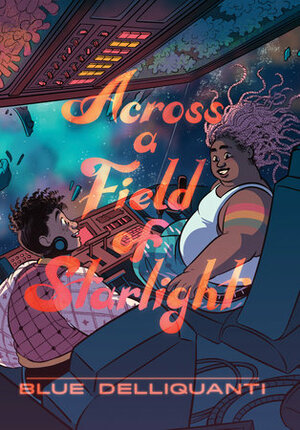
Across a Field of Starlight
Genres: Graphic Novels,
Science Fiction Pages: 345
Rating: 
Synopsis: An epic sci-fi graphic novel romance between two non-binary characters as they find one another through time, distance, and war. An amazing story that explores the complexity of human nature and what brings us together.
When they were kids, Fassen's fighter spaceship crash-landed on a planet that Lu's survey force was exploring. It was a forbidden meeting between a kid from a war-focused resistance movement and a kid whose community and planet are dedicated to peace and secrecy.
Lu and Fassen are from different worlds and separate solar systems. But their friendship keeps them in each other's orbit as they grow up. They stay in contact in secret as their communities are increasingly threatened by the omnipresent, ever-expanding empire.
As the empire begins a new attack against Fassen's people--and discovers Lu's in the process--the two of them have the chance to reunite at last. They finally are able to be together... but at what cost?
This beautifully illustrated graphic novel is an epic science fiction romance between two non-binary characters as they find one another through time, distance, and war.
I really wanted to like Blue Delliquanti’s Across a Field of Starlight a lot, because there’s a lot to like about it. The sheer diversity of body types, the queer normativity, the different types of relationships… there’s so much here, and the art is lovely, and the sheer energy in some of the facial expressions and body language is great.
Unfortunately, I found it a little hard to follow at times — the jumps felt too sudden, so that I wasn’t always sure if scenes were supposed to be connected or not. I adored the whole roleplaying game the two main characters set up between them, and I’d have loved a little more of that context to understand more of why they act the way they do together. A little more world-building would’ve been nice, too, to understand a little more than “evil Empire is evil” and “the resistance can be just as bad”.
I still did enjoy it, and I’m sure some of the deficiencies are mine: I’m not as adept at reading visual media as I’d like to be. But for me, I was left with some questions.
Rating: 3/5
Tags: Blue Delliquanti, book reviews, books, graphic novels, SF/F
Posted June 13, 2024 by Nicky in Reviews / 2 Comments

Hyphen
Genres: History,
Memoir,
Non-fiction Pages: 160
Series: Object Lessons Rating: 
Synopsis: To hyphenate or not to hyphenate has been a central point of controversy since before the imprinting of the first Gutenberg Bible. And yet, the hyphen has persisted, bringing and bridging new words and concepts.
Hyphen follows the story of the hyphen from antiquity - Hyphen" is derived from an ancient Greek word meaning "to tie together" - to the present, but also uncovers the politics of the hyphen and the role it plays in creating identities. The journey of this humble piece of connective punctuation reveals the quiet power of an orthographic concept to speak to the travails of hyphenated individuals all over the world. Hyphen is ultimately a compelling story about the powerful ways that language and identity intertwine.
Mahdavi - herself a hyphenated Iranian-American - weaves in her own experiences struggling to find her own sense of self amidst feelings of betwixt and between. We meet six other individuals who are each on a similar journey and watch as they find a way to embrace the space of the hyphen - rejecting the false choice of trying to fit into previously prescribed identities. Through their stories, we collectively consider how belonging only serves to fulfill the failures of troubled states, regimes, or institutions and offer possibilities to navigate, articulate, and empower new identities.
Pardis Mahdavi’s take on the Object Lessons series, Hyphen, is part-informative, part-memoir, and it’s a format that works well. I still far prefer the books that focus in on the object in question, but this one alternates the two quite well, using the one to help to illuminate the other. It’s probably one that will make a different kind of sense to Americans, since a good portion of the discussion is about “hyphenated Americans” (a phrasing I haven’t heard before, but which apparently has a history), and it delves into the history around that.
Not that immigrants in other countries don’t have similar stories, but I’d also hesitate to generalise. There are certainly parallels with “hyphenated British” experience, and it’s certainly not better here, just different (though increasingly the same all over, I guess; thanks globalisation).
Anyway, Mahdavi’s take on the hyphen wasn’t perhaps the detailed history of punctuation that I might find fascinating (though I have read a book about hyphens before, if memory serves), but it was interesting.
Rating: 3/5
Tags: book reviews, books, history, memoir, non-fiction, Object Lessons, Pardis Mahdavi














